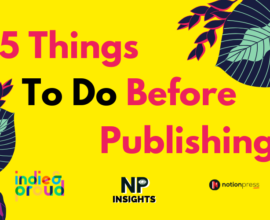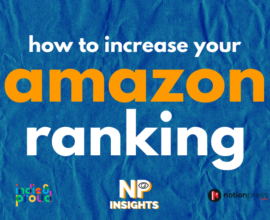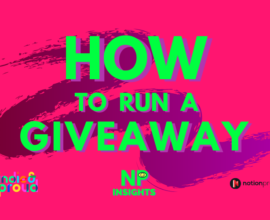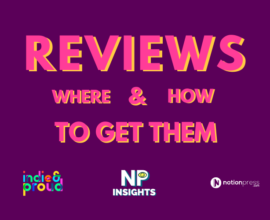Hashtags for Writers
Drinking Hot Chocolate @Somerestaurant #yolo #foodporn #bestday #foodie #livetoeat
Ever come across posts like this online? On photos, on check-ins, on status updates? Does your wall or profile get flooded by these random pieces of words clubbed by a hash symbol? If yes, welcome to the world of hashtags! It’s a common scenario nowadays that you open your facebook, twitter, or Instagram handle and you see a post followed by tons of words prefixed by the hash symbol. If you’re uninitiated, we’re quite sure you’ll find the hashtags pretty annoying, as people seem to blend two or more words without spaces and put irrelevant words for their post. I found it annoying in the beginning, too. But as I read about them and got to understand about their existence, I realized they have a purpose a really useful purpose. They have the power to increase your online visibility and nail your persona as an author or a writer. And on this post, we will see how writers or authors can make use of hashtags to establish online presence, gain exposure, and market their book better.
But what are Hashtags?
Hashtags are searchable links that allow you to look for topics trending online, read posts tagged with a hashtag, and join the conversation. They are features that will fetch you more exposure to what you post, reach your target audience, and get you more readers. As you know that social media is all about discussions and interactions, hashtags are like tools that will help you track discussions, sort content, and network with people from around the world.
To make things simpler, imagine hashtags to be the keywords you use on search engines like Google. What you do when you look for information you like to know online? You use the right keywords on search engines, look at the results, and check out the posts that contain the information you are looking for through keywords. Hashtags are your keywords on social media. You use the search bar on social media platforms like Facebook, Twitter, and even Instagram to enter hashtags and to see posts from people around the world who have used the hashtag you searched for on their post.
Have you ever received likes from random people from a different part of the world for any of your hashtag infused Instagram post? If yes, they’re people who searched for the particular hashtag and reached you. How easy was it for people to find your post? You knew social media was massive but with the use of hashtags you’ll realize how powerful they actually are. And on this post, we’ll look at how you can increase the visibility of your book or you online by the use of hashtags.
But before that, understand the power of hashtags and the volume of reach it can fetch for your book, through these images. Some hashtags have been analyzed on an analytics website called Keyhole.com and this is what we found.
This is the reach of #amwriting hashtag. Check out the number of posts that have this hashtag and the reach of the posts.
Another one with the hashtag #scifi:
But why do Indie Authors need a Hashtag?
Being an indie author is interesting in a sweet way because it is us who has to take care of book marketing and promotion. With an intention to keep the royalty counting and reaching more people, we need to find new ways to publicize our book, take it to the masses, enhance its visibility, and spread word of mouth. If you noticed, we’ve been coming up with unique perspectives on marketing a book and we’ve been making use of even the smallest of tools to make that big impact in selling our book. One such avenue that will help our book reach its readers is the hashtag.
As part of your book marketing strategy, you will be for sure active on social media platforms, posting content, and you will also be engaging your readers on your blog. When you’re doing this, you should understand that your efforts should pay off. Your content should reach the right audience and it needs to be read for them to come to know about you as a writer. Standing with a placard for someone in an airport makes sense but if the person is arriving at the railway station, you waiting will make no sense. The thing here is to make sure our content reaches the right people people who are looking for that particular post. That’s why keywords play an important role in search engines and on social media, the keyword is a hashtag.
For instance, if you’ve unveiled your new ebook online and you want the world to know about it, you’ll indeed post about it on your social media profile. But the reach of the post is very limited though the probabilities of it getting seen are vast. But when you add a hashtag to your post, you open up boundaries for it to reach millions of people out there. All you need to do is add the hashtag #Ebook. People who are on the lookout for ebooks to read will use the hashtag to search and they’ll find your post on the results too. By doing so, you’ve just taken an effort to get more exposure and reach the right audience.
How to Use a Hashtag
To use hashtags, include the right keyword and prefix it with the hash symbol. You can use hashtags at the beginning of your post, at the end, or anywhere in between. The placement of the hashtags doesn’t matter. All that matters is their presence. Check out some of the best practices for using hashtags.
- Hashtags do not take up spaces like a normal search keyword. So, whatever your hashtag is going to be, it has to be used without space. For instance, it’s right to use #writingprompt and not #writing prompt.
- Also do not separate a hashtag keyword into two and post them as two individual hashtag. It is #writingtips and not #writing #tips because tips is a broad keyword by itself and people who are looking for writing tips may not arrive at your post.
- On hashtags, it doesn’t matter if you use capitalized words or not. A search result will yield your posts regardless of whether you type your hashtag as #AmWriting or #amwriting.
- You can use numbers on your hashtags but make sure you add numbers after words. Do not start your keyword with a number. For instance, #2012comiccon should be #comiccon2012.
- Note that you shouldn’t use special characters on your hasthags as well. So, no inclusion of commas, apostrophes, question marks, slashes, and others on your hashtags. Forget grammar and punctuation when you include hashtags.
- Do not confuse your hashtag with the @ symbol. The @ symbol has a different purpose altogether to tag people online. If you’re addressing something to someone directly, it is better to use the @ symbol than a hashtag.
- Do not overuse your hashtags. As far as my experience is concerned, a maximum of three hashtags are best for your post. Overuse hashtag and you’ll end up making an impression that you’re spamming.
- Though it is good to create a hashtag, I suggest you use the ones that are trending. Using the one you created will limit the reach of your post and won’t make it to the trending list.
Hashtags You Should Know
There are hashtags for every single field, industry, and brand on social media. As writers or authors, you should know which one is the most relevant to you. What we’ve done here is compiled some of the most trending hashtags on social media into varied categories. You can choose the one that suits you and use them on your posts.
For Writers who wish to Share their Writing Process with Followers
If you’re in the process of writing your manuscript and you want to share with your readers your experience, here are some of the hashtags you can use. These hashtags are more useful when you’re writing your second book and you want to keep your readers excited about your next book. Even otherwise, the hashtags generate the buzz for your book.
#amwriting
#creativity
#writing
#amediting
#wordathon
#indieauthor
If you’ve encountered writer’s block and you want ways to get over it and let creativity loose, use #writersblock. For motivation to get started with writing, use #writemotivation.
To Share What Genre you’re Writing
When you want to reveal the genre you’re writing or you want to promote your book after it’s been published, use a hashtag before the genre of the book you’re writing. This will give a significant exposure to your book and will reach an audience who love to read books relating to your genre.
For instance, if your romance-fiction is out in the market and you want your book to reach to people who love to read romance-fiction, use the hashtag #romance. One of the other ways you can promote your book is by posting a romantic dialogue from your book and using this hashtag. You should then comment the link of your book on your post, so you can also achieve call-to-action.
Some of the other genre based hashtags include:
#mystery
#scifi
#mythology
#suspense
#murdermystery
#poetry
#shortstory
#paranormal
#nonfiction
On the Day of the Launch of your Book
On the day your book is published and made available to the market, post an update saying your book is out and how excited you are. Follow it up with the hashtags of the online stores your book will be available on. For instance, #amazon, #ebook, #kindle, #smashwords, and #kobo.
To connect with other industry experts and join discussions about publishing and things related to it such as cover designing, editing, discussing with agents, getting published, self-publishing, and the likes, you can use the following hashtags:
#askagent
#askauthor
#getpublished
#indiepub
#selfpublishing
#pubtip
#bookmarketing
To promote your book to readers and to notify them about your book giveaway campaigns, use #bookgiveaway, #freebook, #authorrt, and #freedownload. You can use the hashtags #teasertues or #fridayreads to promote your book on Tuesdays and Thursdays. These hashtags are popular on these days where more people search for books to read. Also, when your book is on the global website of Amazon and you’ve priced it at 99 cents, use the hashtag #99c to get searchers to reach your book. This is an excellent hashtag to use when you’re running promotional offers for your book for a specific time period. Combine the #fridayreads and the #99c to run a campaign and boost your book’s sales.
By now, you would have realized the power of hashtags, what they mean to your posts, and what they can do for your book. But rewards cannot be reaped by just reading about them; you have to implement them as well. Use relevant hashtags depending on your books and make the most of your book marketing strategies through hashtags. Good luck!








Pingback: How to Promote Books on Instagram like a Pro | Publishing Blog in India()
Pingback: Social Media Marketing Blunders to Avoid when Promoting your Book | Publishing Blog in India()